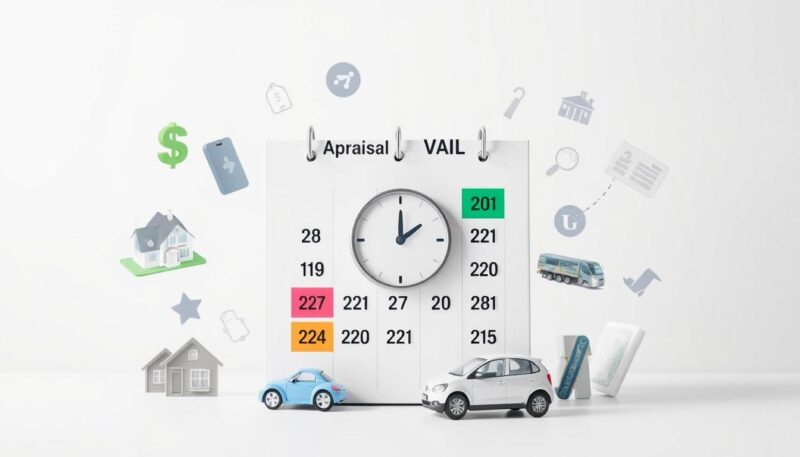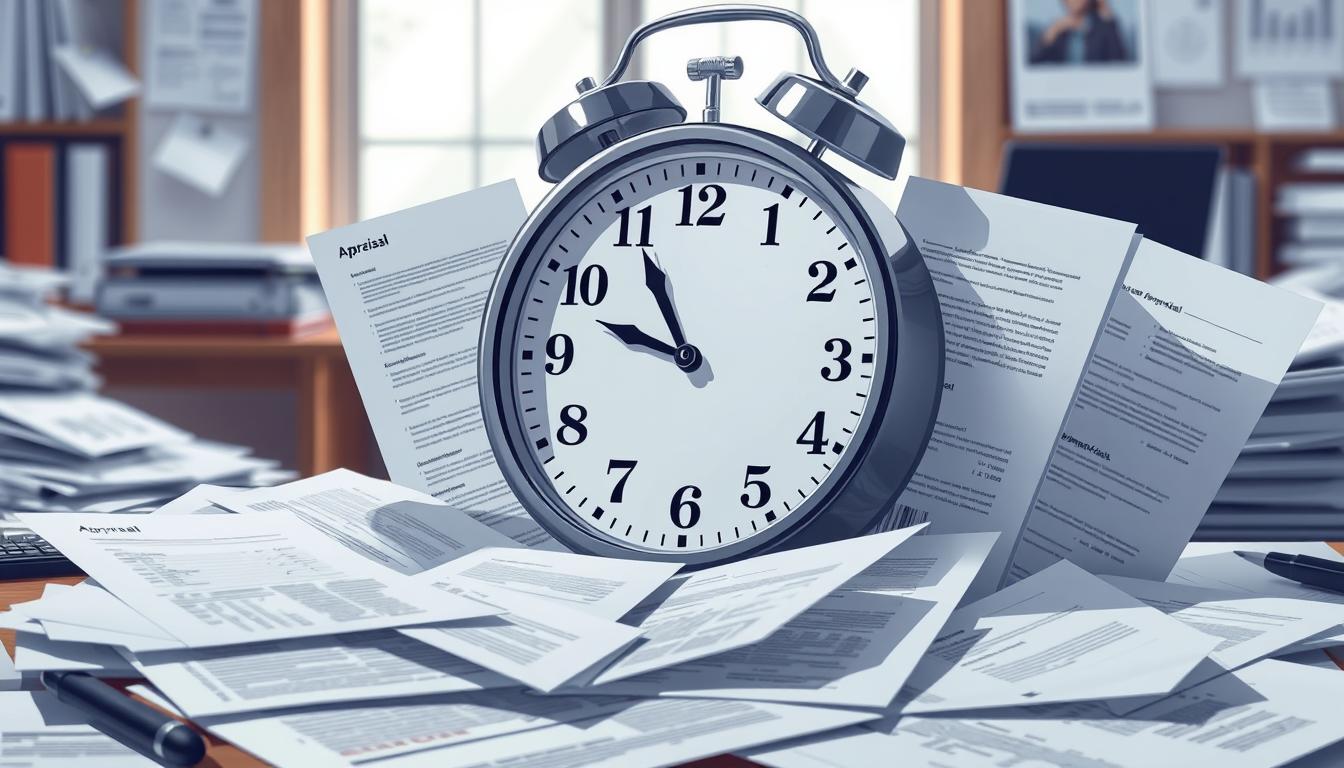Understanding the validity of property appraisals is vital when navigating the complex realm of real estate. You might be wondering, how long is an appraisal good for? The general consensus is that the majority of appraisals are deemed valid for around 90 days. However, this duration can stretch to 120 days for conventional loans and even extend to a full year in specific instances, such as new constructions under Fannie Mae and Freddie Mac guidelines. This article will delve into the nuances of appraisal expiry, helping you grasp the significance of appraisal date and validity in relation to your buying or selling journey.
As you explore the intricacies of property appraisal expiration, keep in mind that various factors, such as market stability and loan types, play essential roles in determining how long an appraisal remains useful. By the end of this piece, you will not only know the specific timelines associated with different loan types but also how market conditions affect the lifespan of appraisals. This knowledge is crucial for ensuring accurate property value assessments, keeping you informed as you step forward in making significant real estate decisions.
Understanding Appraisal Expiry
An appraisal serves as a vital tool in the real estate industry, helping to determine the fair market value of a property at a given moment. Understanding appraisal timelines plays a crucial role in ensuring that you are aware of when a new appraisal might be necessary. Various factors can influence how long an appraisal remains valid, particularly changes in market conditions and specific loan requirements.
What Is an Appraisal?
An appraisal is a professional assessment performed by licensed appraisers trained to evaluate a property’s value. This evaluation considers several elements, such as the location, size, and condition of the property, alongside recent sales of comparable properties. Knowledge of what is an appraisal helps buyers and sellers make informed decisions. Typically, home appraisals are valid for approximately 90 days, while appraisals for conventional loans concerning existing homes can last up to 120 days and, in the case of new homes, even up to a year.
Factors Affecting Appraisal Validity
Multiple factors affect appraisal validity, including market dynamics and borrower situations. For instance, rapidly changing market conditions can shorten the validity of an appraisal to as little as 30 days, necessitating a rigorous examination of the property’s value. The type of mortgage loan significantly impacts these timelines; for example:
| Loan Type | Appraisal Validity | Update Requirements |
|---|---|---|
| Conventional Loans | 120 days (existing homes), up to 1 year (new homes) | Update after 120 days |
| FHA Loans | 180 days or up to 240 days (if updated) | Require update after 180 days |
| USDA Loans | 120 days with a 30-day grace period | Update if over 150 days by closing |
| VA Loans | Up to 6 months | New appraisal if closing does not occur |
By grasping these factors affecting appraisal validity, you can better navigate the requirements of your loan type and remain proactive about the need for updates or new appraisals.
How Long Is an Appraisal Good For?
Understanding the validity period of an appraisal is essential when navigating real estate transactions. While there isn’t a strict expiration, there are general timeframes for appraisals that you should be aware of.
General Timeframes for Appraisals
An appraisal typically has a validity of around 12 months from the date of the note and mortgage. If the original appraisal report is older than four months but less than 12 months at the time of the note, a timely appraisal update is necessary. This update must occur within four months preceding the note and mortgage date. Various loan types have differing general timeframes for appraisals, so familiarity with these distinctions helps you manage expectations effectively.
Appraisal Validity Based on Loan Type
Different loan types dictate specific appraisal validity periods. Here is a summary:
| Loan Type | Validity Period |
|---|---|
| FHA Loans | Typically 120 days, with a recertification option for an additional 120 days if applied for before expiration |
| VA Loans | Up to 6 months, automatically expiring upon loan closure |
| Conventional Loans | 12 months for new homes, 120 days for existing homes |
| USDA Loans | Stricter validity periods compared to conventional loans |
Market conditions and changes can significantly impact how long an appraisal is valid. Unexpected damages or discrepancies within the appraisal report may necessitate a new appraisal or update. Keeping these factors in mind can facilitate smoother real estate transactions.

Market Conditions and Their Impact on Appraisals
Market conditions are vital in determining how long an appraisal maintains its validity. Fluctuations in property values can significantly influence appraisal lifespan, compelling lenders to adjust their appraisal requirements based on current market trends.
Stability vs. Volatility in the Real Estate Market
In stable real estate markets, lenders often accept appraisals up to three to six months old, with four months being the most typical validity period. This timeframe rests on the assumption that property values remain stable during this duration. In contrast, volatility in the real estate market can create uncertainty, resulting in lenders requiring more recent appraisals. Such rapid changes may limit appraisal validity to as little as 30 to 60 days, impacting buyers’ transactional readiness and potentially causing delays.
How Market Trends Influence Appraisal Lifespan
Understanding how market trends influence appraisal lifespan can assist in navigating home buying or refinancing. For example, FHA loans traditionally allow for appraisals to be valid for 180 days, with recent revisions enabling extensions up to one year. In contrast, VA loans demand a new appraisal every six months, emphasizing the direct link between market conditions and appraisal necessity. USDA and HUD loans follow suit with validity periods ranging from 150 to 180 days. This variance can often depend on specific lender requirements as well.
| Loan Type | Typical Appraisal Validity | Notes |
|---|---|---|
| FHA Loans | 180 days (up to 1 year with extension) | Recent updates permit longer validity under certain conditions. |
| VA Loans | 6 months | New appraisal required if the sale doesn’t close within six months. |
| HUD Loans | 180 days | Valid based on current market stability. |
| USDA Loans | 150 days | Similar conditions apply; may require updates in volatile markets. |

Conclusion
In summarizing the conclusion on appraisal expiry, it becomes evident that understanding how long an appraisal is good for is essential for both buyers and sellers navigating the real estate landscape. The importance of appraisal validity cannot be overstated, especially as timelines vary based on loan types and market conditions. Typically, you can expect an appraisal to be valid for about 90 days for conventional loans, stretching to up to a year in stagnant markets.
Being knowledgeable about the summary of appraisal timelines will enable you to make well-informed choices in property transactions. For example, an appraisal may take 7-10 days to complete, costing between $300 to $400 for standard homes, with potential increases in more competitive market areas. Regular updates, property maintenance, and a clear record of improvements not only enhance your likelihood of securing a favorable appraisal but also contribute to a more rewarding real estate experience.
Ultimately, awareness of expiry dates and market dynamics helps you avoid potential pitfalls and empowers you in negotiations, reinforcing the value of staying informed throughout your real estate journey.

